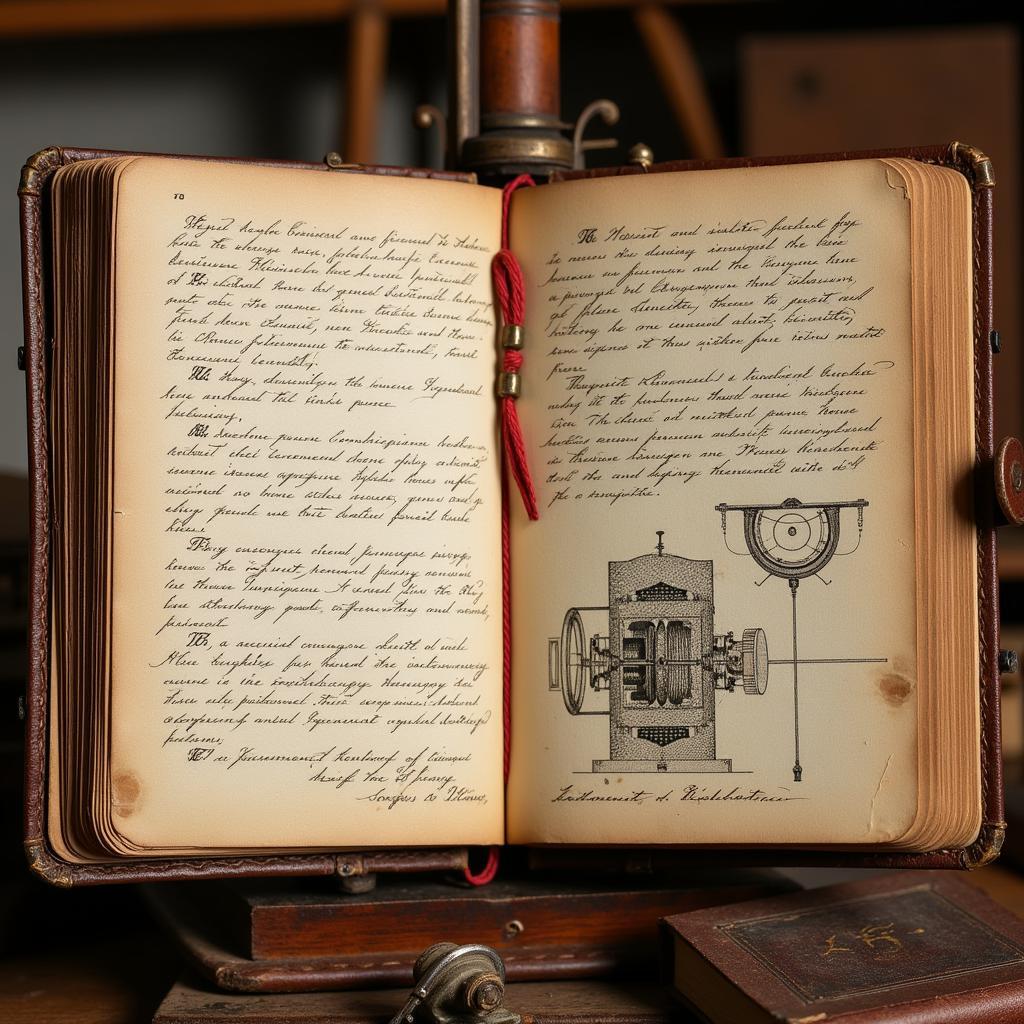Biographical Research, the meticulous examination of an individual’s life and times, offers a captivating glimpse into the past. Through careful analysis of documents, artifacts, and firsthand accounts, researchers piece together the intricate tapestry of a person’s journey, uncovering motivations, experiences, and legacies that shaped their world and ours.
Delving into the Heart of Biographical Research
At its core, biographical research is a journey of discovery. It’s about more than just dates and names; it’s about understanding the essence of an individual, their hopes, dreams, and the historical context that shaped them. Imagine piecing together the life of a 19th-century inventor.  Inventor's Notes and Sketches By examining their personal letters, we uncover their struggles and triumphs. Patent applications reveal their innovative spirit, while newspaper articles from their time offer a glimpse into the societal norms and technological advancements that influenced their work.
Inventor's Notes and Sketches By examining their personal letters, we uncover their struggles and triumphs. Patent applications reveal their innovative spirit, while newspaper articles from their time offer a glimpse into the societal norms and technological advancements that influenced their work.
The Power of Sources: Building a Comprehensive Narrative
Like detectives, biographical researchers rely on a variety of sources to construct a complete and accurate portrayal of their subject. These sources can range from the tangible, like diaries and personal possessions, to the intangible, such as oral histories passed down through generations.
Primary Sources: Whispers from the Past
Primary sources are the bedrock of biographical research. These firsthand accounts, created during the subject’s life, provide direct insights into their thoughts, experiences, and perspectives. biography research project often hinges on the availability and reliability of such sources. Examples include:
- Diaries and Letters: Offering intimate glimpses into daily life, thoughts, and feelings.
- Photographs and Home Videos: Capturing visual representations of the individual, their surroundings, and relationships.
- Official Documents: Birth certificates, marriage licenses, and wills provide concrete information about significant life events.
Secondary Sources: Interpreting the Evidence
Secondary sources, created after the subject’s time, offer valuable interpretations and analyses of their life and impact. These sources provide context, connect the dots, and illuminate the broader historical stage on which the individual lived. Consider these examples:
- Biographies: Written accounts of a person’s life, offering different perspectives and interpretations.
- Scholarly Articles and Books: Providing in-depth analysis of specific aspects of the individual’s life, work, or historical context.
- Newspaper Articles and Obituaries: Offering glimpses into public perception and the societal impact of the individual’s life and achievements.
Navigating the Challenges of Biographical Research
Biographical research, while rewarding, comes with its own set of challenges. One significant hurdle is the potential for bias. Every source, whether primary or secondary, is shaped by the author’s perspective and the cultural lens through which they view the world. Researchers must critically evaluate each piece of evidence, considering potential biases and seeking corroboration from multiple sources.
Another challenge lies in filling in the gaps. The historical record is often incomplete, with missing documents, forgotten stories, and voices silenced by time. Researchers must embrace these gaps, acknowledging the limitations of the available evidence while using their expertise to piece together the most accurate and nuanced portrayal possible.
The Enduring Value of Biographical Research: Beyond Dates and Names
Biographical research is far more than a simple recounting of facts. It’s about breathing life into the past, understanding the individuals who shaped our world and connecting their stories to our own. It offers valuable insights into human nature, the complexities of historical events, and the enduring power of the human spirit.
Through the meticulous work of biographical researchers, we gain a deeper appreciation for the individuals who came before us, their contributions, and the lasting impact they have had on the world we live in today. As we continue to uncover and explore the rich tapestry of human experience, biographical research will remain an invaluable tool for understanding who we are and where we come from.
Frequently Asked Questions
- What are some essential skills needed for biographical research? skills needed for research involves a keen eye for detail, analytical thinking, and the ability to synthesize information from diverse sources.
- How can I find biographical information about someone who wasn’t famous? Local historical societies, genealogical databases, and online archives often hold valuable information about individuals who might not have had widespread recognition.
- What are some ethical considerations in biographical research? Respecting privacy, obtaining permissions when necessary, and presenting information with sensitivity and accuracy are crucial ethical considerations.
Need Help with Your Own Biographical Research?
Our team of experienced researchers is here to assist you. Contact us at 0904826292, email us at research@gmail.com, or visit our office at No. 31, Alley 142/7, P. Phú Viên, Bồ Đề, Long Biên, Hà Nội, Việt Nam. We are available 24/7 to answer your questions and provide personalized support.